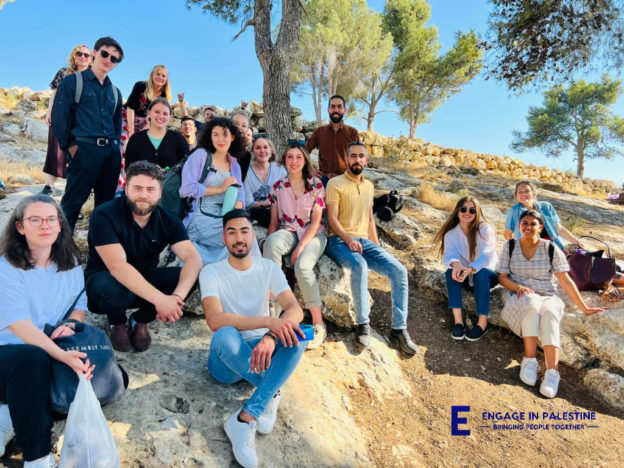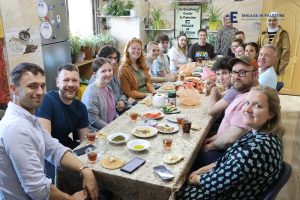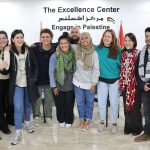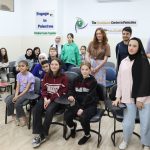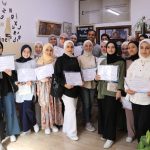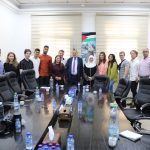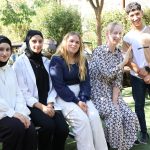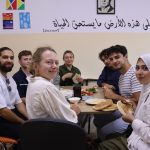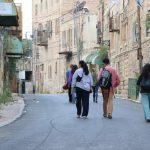Your Guide To Learning The Levantine Arabic Dialect by Engage in Palestine: Are you interested in learning the Levantine Arabic dialect? Levantine Arabic or the Levantine dialect refers to the dialect of Arabic spoken by people living in the Levant region of the Middle East – Syria, Lebanon, Palestine, and Jordan.
It is also sometimes called Shami Arabic as “Sham” is the Arabic word for the Levant. It’s a dialect inextricably linked to the history and the culture of the region and it has been influenced by several different cultures and languages over time, including Aramaic, Greek, Latin, Syriac, Turkish, and French.
It’s important to note that even within the Levant there are regional differences in terms of vocabulary, accent, pronunciation, and colloquial expressions. Even in the same country, from one city or village to the next there can be differences.
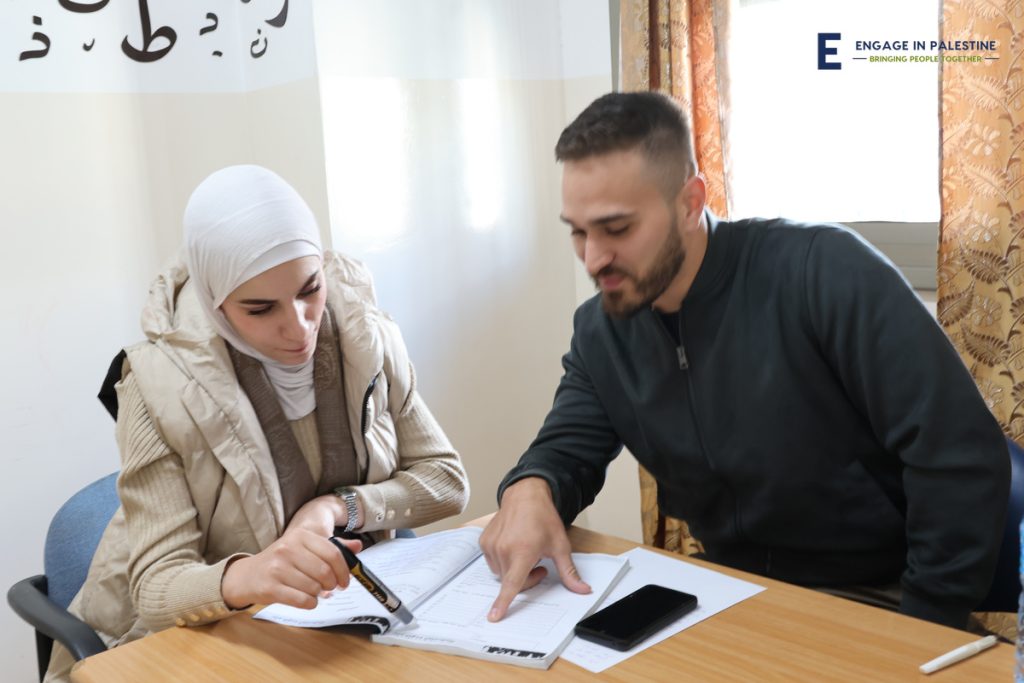
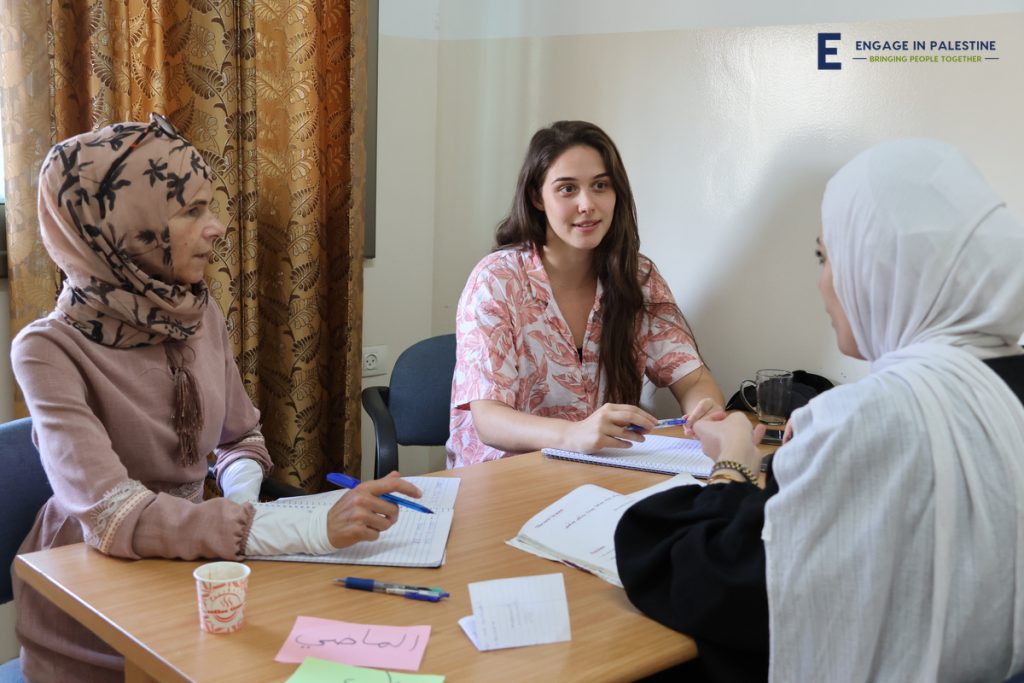
Table of Contents
The Differences Between Levantine Arabic And Modern Standard Arabic
Many institutions will teach Modern Standard Arabic (MSA), claiming it’s the language spoken by all Arab peoples. And that it’s more useful for business, reading newspapers, and official documents, and is more recognizable around the Arabic-speaking world.
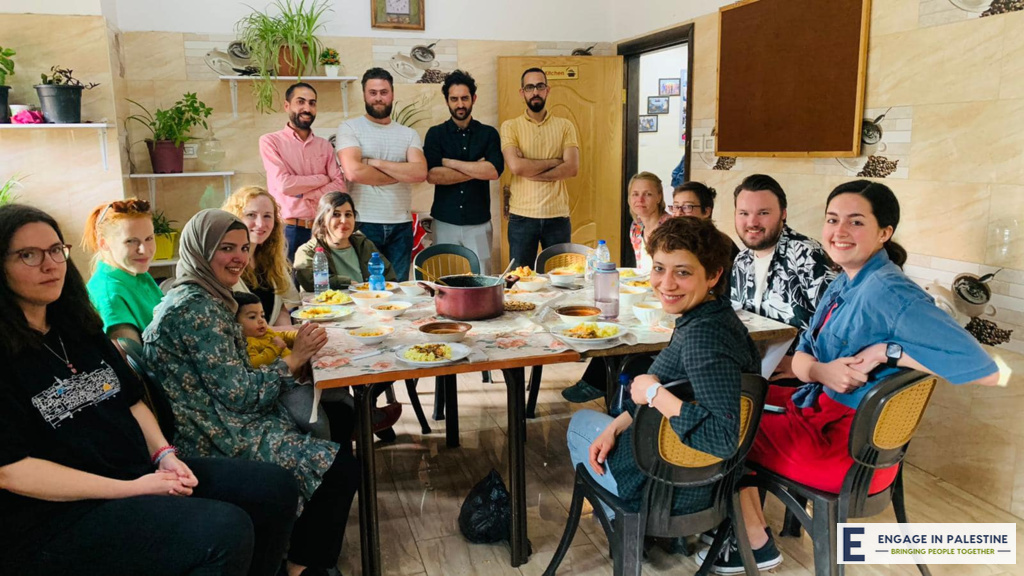
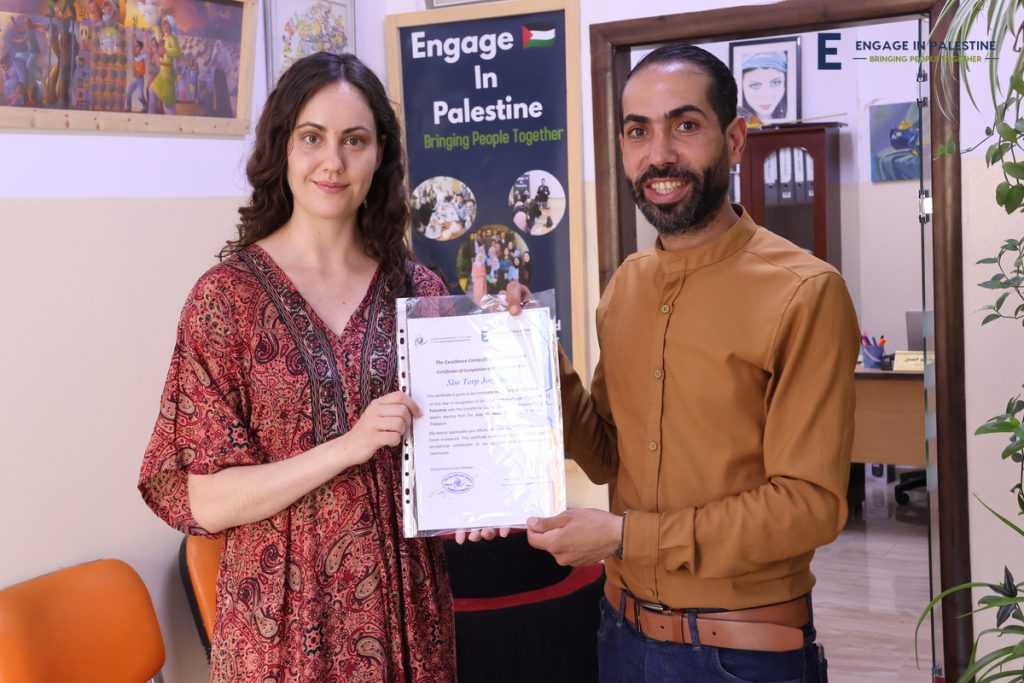
However, MSA is rarely a spoken language and it isn’t used in regular communication between people. When native Arabic speakers hear someone speaking MSA, it can sound a bit funny and strange as MSA is quite formal and people don’t speak it in an everyday context. Therefore, if you want to learn the Arabic spoken by Arab people, learn their dialect.
While there are numerous differences between MSA and Levantine Arabic, overall, there are far fewer differences than between MSA and a North African dialect, for example.
Some differences are outlined below.
Pronunciation
There are some pronunciation differences, for example, the letter “qaf” is pronounced differently by several Levantine Arabic speakers. Some will pronounce “qaf” as “qaf”, others will replace it with an “alif” or “kaf” sound. There are other pronunciation differences between MSA and various Levantine Arabic speakers with vowels and some other consonants.
Grammar
There are also some grammatical differences, such as with structures and the way sentences are formed. Usually, these are harder and more complex in MSA. These grammatical differences include case endings, verb conjugations, some pronouns, word order, syntax, and more.
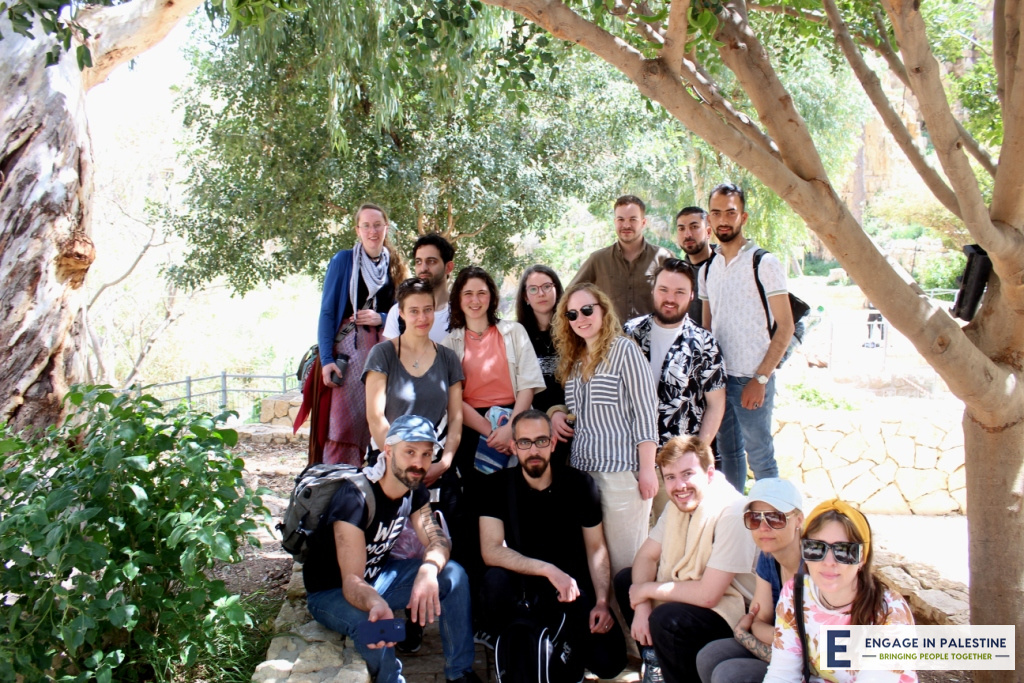
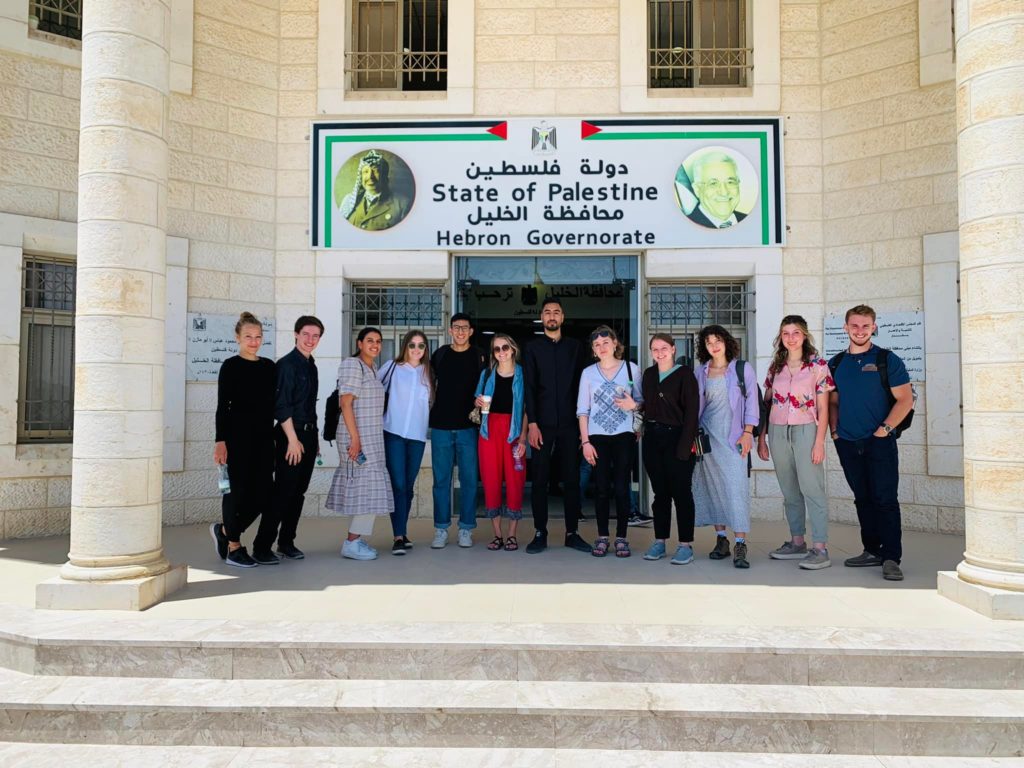
Vocabulary
Finally, there are many differences between MSA and Levantine Arabic in terms of vocabulary. Around 50% of the vocabulary in Levantine Arabic corresponds with MSA, so about half the words are the same or very similar. Even from one Levantine city or country to the next, there will be some differences in vocabulary, which is a common feature of any widely spoken language.
Why Learn The Levantine Dialect Of Arabic?
There are many reasons to learn the Levantine dialect of Arabic, whether for professional, personal, practical, intrinsic, or linguistic reasons. We will outline some of the main nine reasons below.
1. It’s The Most Recognizable And Closest To MSA
There are many reasons why Levantine Arabic is a great choice of dialects to learn. Firstly, it is the most instantly recognizable of all Arabic dialects. Arabic speakers from Morocco across the Gulf States can usually understand a Levantine Arabic speaker, even if the reverse is usually not true. Some also say it’s the easiest dialect to learn as it is the closest dialect to Modern Standard Arabic (known as fus’ha in Arabic).
2. For Cultural Understanding And Exchange
If you are interested in the Levant region or a specific Levantine country, learning Levantine Arabic can be a fascinating way to explore the Levant’s history, culture, and customs. It will also give you insights into the mindsets and communication patterns of the Levant’s Arabic-speaking populations and allow you to connect with locals more deeply.
3. For An Enhanced Travel Experience
If you wish to travel in or around The Levant, learning Levantine Arabic is a sure way to enhance your travel experience. It will allow you to communicate effectively and connect with locals more intimately. Of course, it can also allow you to understand people if they’re talking about you and they think you won’t understand! It will also allow you to navigate your travels, ask for help, order at a restaurant or cafe as well as read signs and menus more easily. So overall, it can make your travel experience more immersive and authentic.
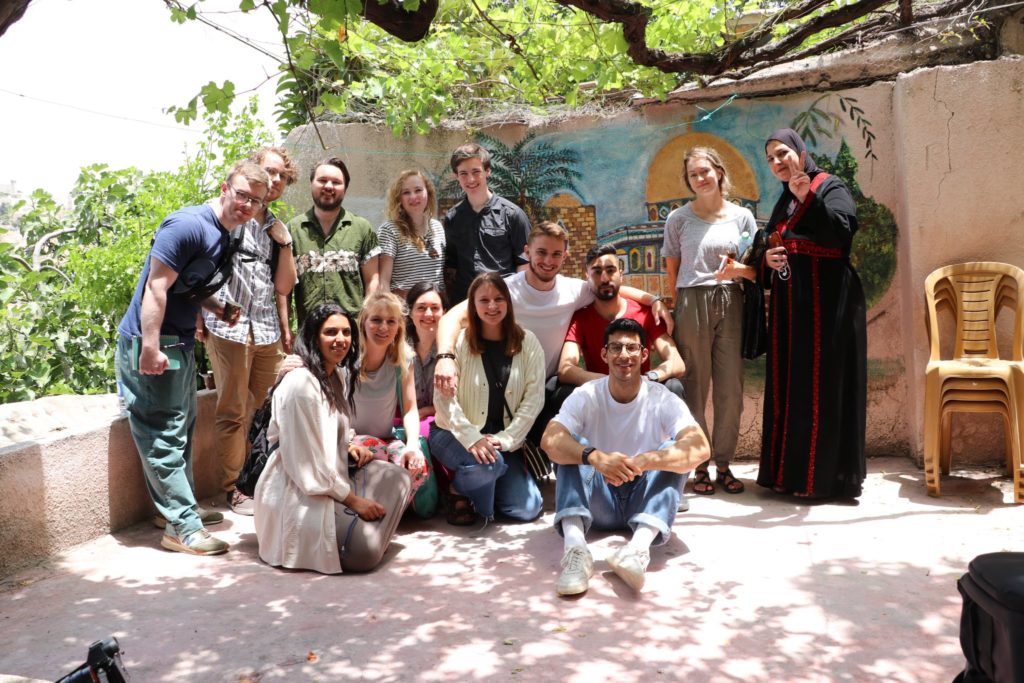
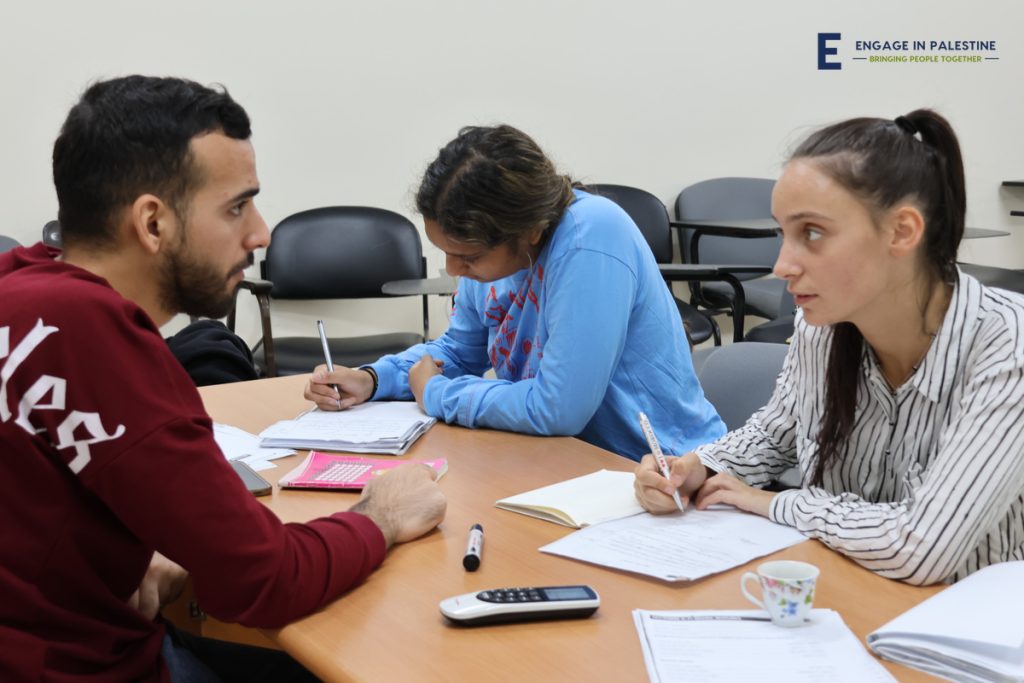
4. For Business Opportunities
If you are interested in doing business in the Levant, learning Levantine Arabic can not only improve your business prospects but also build and improve relationships with those you do business with. As language and culture are intertwined, learning the language will also give you valuable cultural insights, allowing you to better understand, negotiate with, and adapt to your business partners and clients.
5. For Job And Career Opportunities
Speaking multiple languages is always an asset when applying for jobs or looking to expand your career or move it in a new direction. Learning Levantine Arabic will open up possible translation and interpretation career opportunities, as well as opening doors to potential international business and diplomacy positions. Of course, if you wish to work in the Levant region, being able to speak the language may be required, but even if it isn’t, it will still benefit you in your daily life.
6. For Academic Pursuits
If you are studying or interested in studying Middle Eastern studies, anthropology, history, political science, or other related fields, knowing Levantine Arabic can be a big asset. It is particularly valuable for those who wish to engage with local communities, such as for conducting research or interviews, as well as analyzing primary data sources.
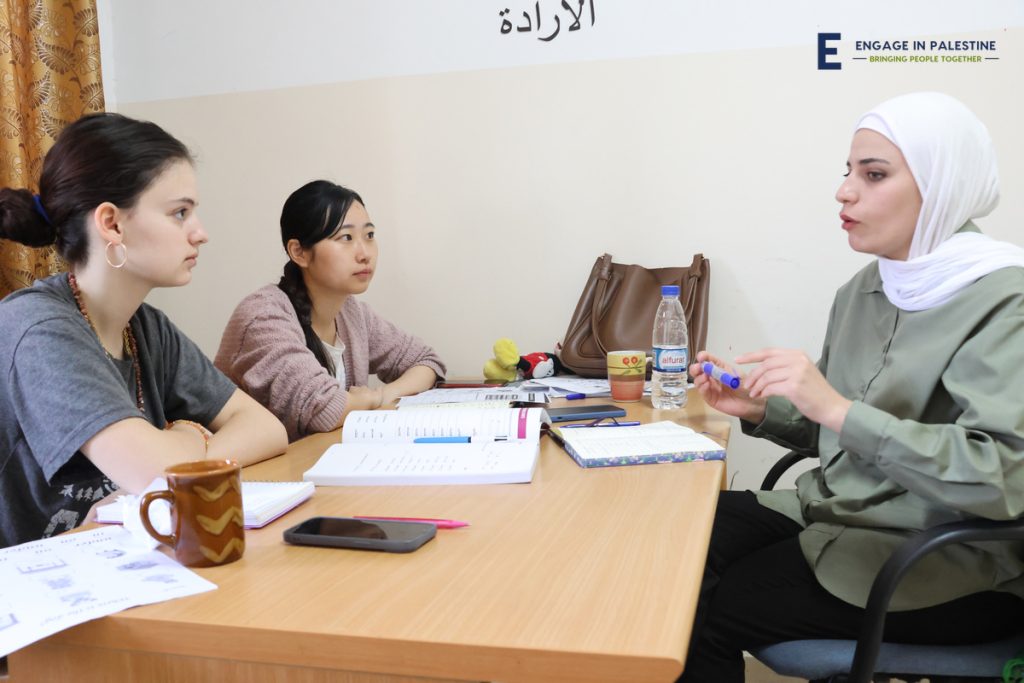
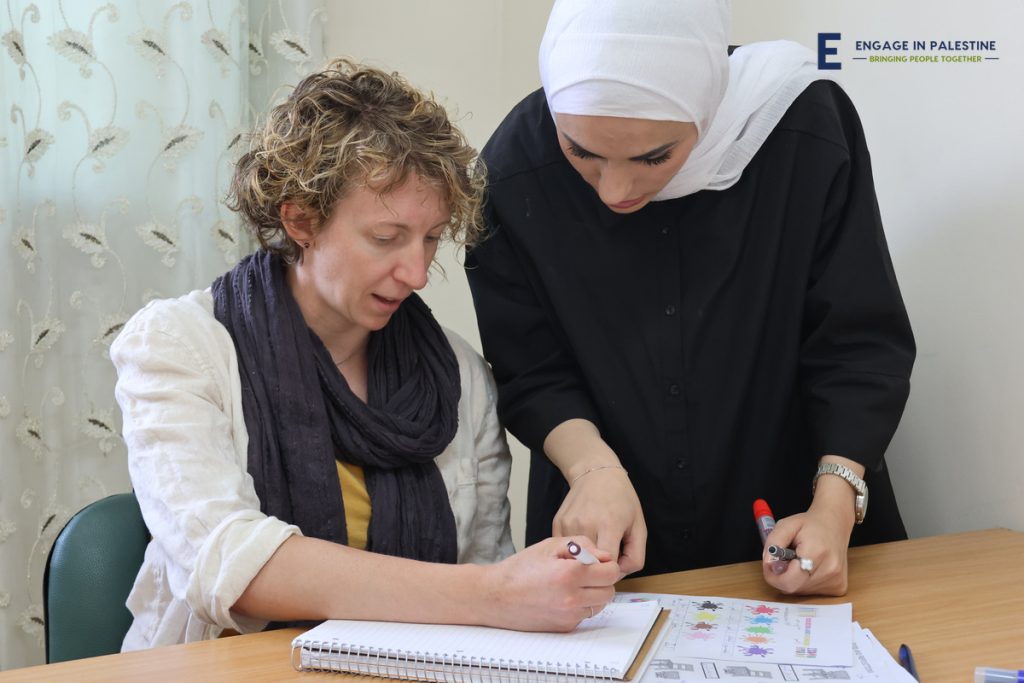
7. For Linguistic Reasons
Arabic is the fourth most widely spoken language in the world, although not all Arabic speakers know the Levantine dialect. Still, Arabic is a very valuable language to learn, as well as an interesting one. If you wish to challenge yourself linguistically, learning Levantine Arabic is a great way to do that.
8. For Personal Growth
Learning a new language is a lifelong process, it takes commitment, along with a willingness to challenge yourself and be vulnerable. After all, in the initial stages of learning a language, you often feel like a child as you are only able to communicate in fragments and not full coherent sentences. Learning a new language is also a great way to build your confidence and give you a sense of accomplishment. It will also help you build new neural pathways in your brain, thus enhancing your cognitive abilities and improving your memory.
9. For Love
Finally, if you have family members or other loved ones who come from the Levant, you may wish to learn Levantine Arabic to better understand them and be able to connect with them on a more intimate level. This can be a great motivation, particularly if they are willing to practice with you and support your learning.
A Few Tips For Learning Levantine Arabic
The most important thing that any language learner can do is to practice, practice, practice. The only way to improve your Arabic speaking ability is to practice speaking again and again, even if you are just speaking to yourself or a pet. The same principle applies to listening, reading, and writing skills.
There are also several ways you can practice Arabic without dedicated study. These include watching Arabic films and series in the Levantine dialect, of which there are many on Netflix. You can also listen to Arabic songs to pick up pronunciation, vocabulary, and expressions from the lyrics.
If you are at an intermediate or advanced level, you can also try reading articles online about your interests to build your vocabulary and reading skills. Finally, if you have any native Arabic-speaking friends, you can always chat or text with them. It’s very easy to add an Arabic keyboard on your phone and it will make practicing and communicating in Arabic much easier.
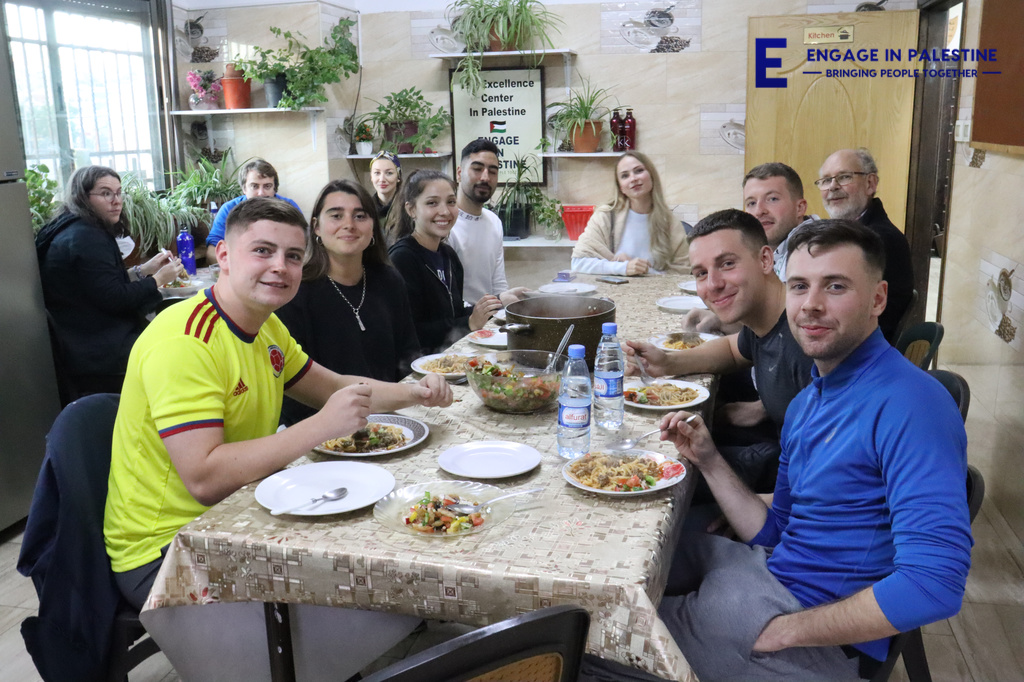
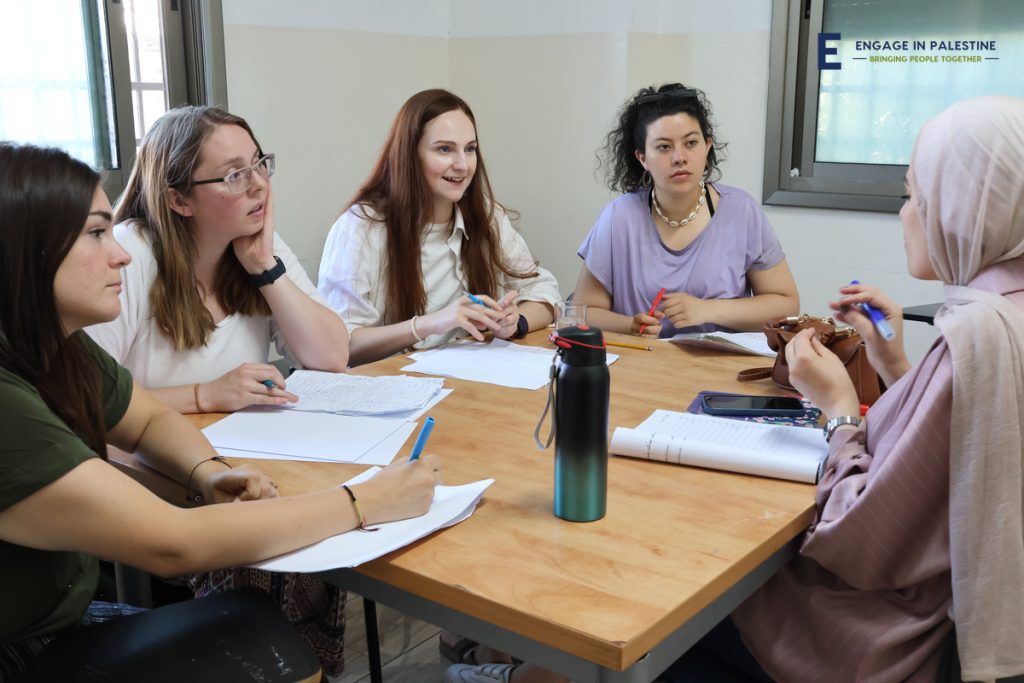
Where Can You Learn Levantine Arabic?
If you wish to study Levantine Arabic, you have several options where you can do this, which we will outline below.
Learn In Your Home Country
You may be able to study it in person in your home country if you can find a language school or private tutor offering classes. However, this can be challenging as most language schools outside the Arab World offer classes only in Modern Standard Arabic. Another alternative to studying from home is through the internet, whether with a private tutor online, through YouTube videos, or through other study materials you can find.
Or Learn In The Levant
However, if you wish to improve your language level rapidly, we recommend you come to the Levant to have a fully immersive language learning experience. Being surrounded by native Levantine Arabic speakers will help you improve your pronunciation, vocabulary, and fluency significantly. In addition to learning colloquial expressions, hand gestures are used while speaking as well as important cultural context. The vast majority of locals in the Levant are very friendly and hospitable and will be willing to help you practice your Arabic.
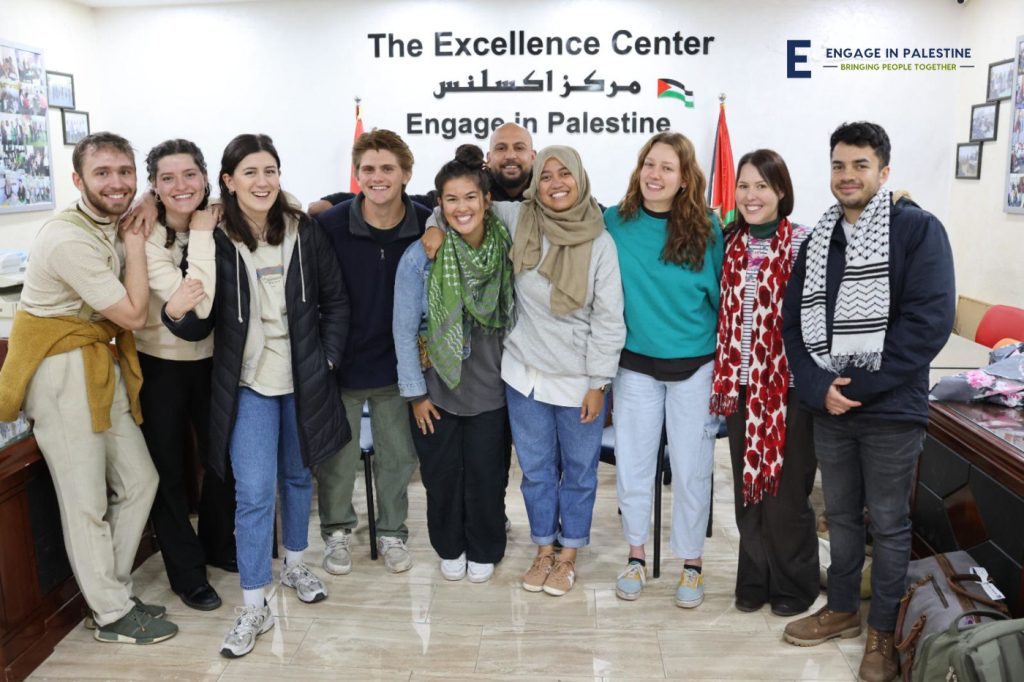
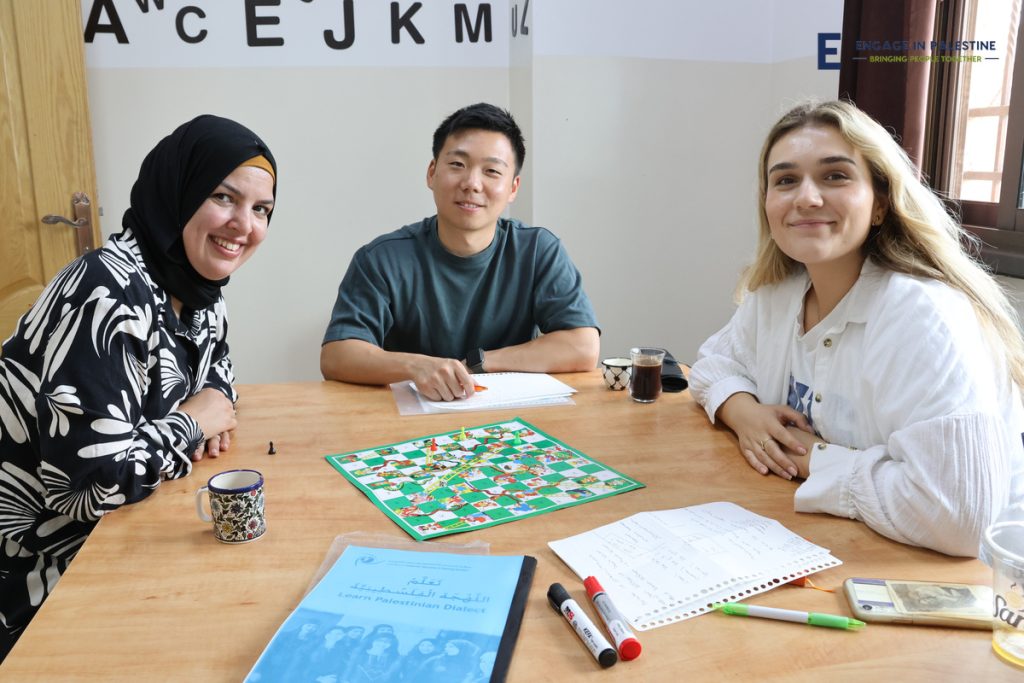
If you have studied any Levantine Arabic before, it’s always a good idea to brush up on it before making your way to the Levant. This can make it easier to navigate your surroundings and it can help you avoid getting ripped off by taxi drivers.
There Are Many Organizations And Programs To Learn In The Levant
In the Levantine region, there are plenty of organizations with which you can study the local dialect. There are intensive language courses with language schools, universities, and NGOs. Then there are volunteer programs that may provide you with Arabic language learning in return for volunteer work or providing some kind of service to their organization. You could also explore the option of a language exchange, where you visit an Arabic country to stay with a host family and teach them your native language in return for Arabic tuition.
Learn Levantine Arabic In Palestine
Palestine is a great country for Arabic students to learn Levantine Arabic. Learning in Palestine is an effective way for you to immerse yourself in the local culture and language. Palestinians are well-known for their warm and incredible hospitality, especially towards foreigners. This means that Palestinians are generally very open, patient, and willing to communicate and will often enjoy that you are making an effort to speak their language. This gives Arabic students plenty of opportunities to interact and connect with locals in an immersive and authentic setting.
Being able to speak at least some Levantine Arabic, will help you to build meaningful relationships with local Palestinians and get to know more about Palestinian customs and daily life. If you are interested in doing research, it will also allow you to connect with Palestinians and allows you to understand them in their native language. Additionally, learning Levantine Arabic can also allow you to understand some music, folk songs, poetry, and literature, allowing you to gain a deeper understanding and appreciation for Palestine’s rich culture.
Learning The Levantine Arabic Dialect Through Intensive Courses With Engage In Palestine
Engage in Palestine is a reputable organization, operating since 2011 in Hebron, West Bank, Palestine. We offer a range of short-term volunteer programs to prospective volunteers as well as intensive Arabic courses to Arabic students from all over the world. Whether you are a current university student, graduate, teacher, professional, or anyone else looking to learn Arabic, our courses are ideal for you.

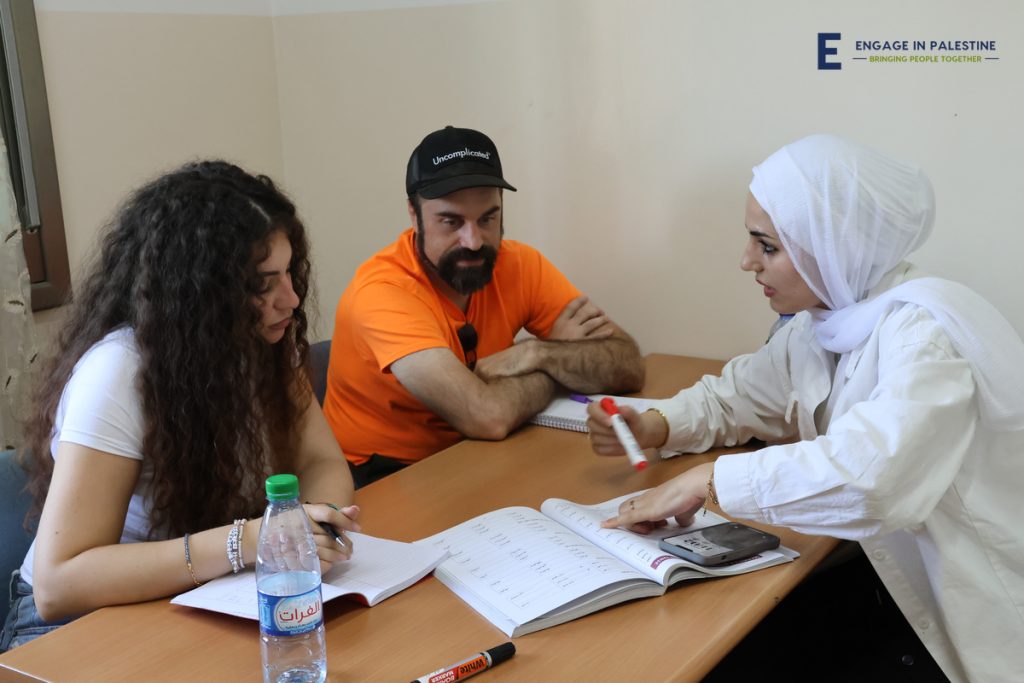
We offer short-term intensive courses in Levantine Arabic as well as courses in Modern Standard Arabic (MSA), although we will focus on Levantine Arabic in this article. You may also choose to take a mix of Levantine Arabic and MSA classes, the choice is up to you! We offer one-on-one classes or small group classes where available. If you cannot travel to study with us in person, consider taking online classes with us.
Our Arabic Course Offerings
To find out more about the specific courses we offer, please click the program names below.
| Super-Intensive, Intensive & Non-Intensive Arabic Immersion Courses | Individual Levantine Arabic Courses |
| Colloquial Palestinian Arabic Lessons | Study Arabic Courses for Arabs |
| Modern Standard Arabic Programs | Shami (اللهجة الشامية) Arabic Programs |
| Ammiya Intensive Arabic Programs | Palestinian & Levantine Online Arabic Courses |
| Mixed Arabic Courses (Modern Standard Arabic and Colloquial Palestinian Arabic) | Arabic Language Course for Reading and Understanding the Quran |
Arabic Course Duration And Timing
We offer short-term Arabic courses, although the duration and timing are very flexible. You can study with us for as little as one week, up to 13 weeks, or 3 months, which is the length of a semester at some universities. We offer Arabic lessons year-round so you will generally be able to decide when to begin and end your Arabic program.
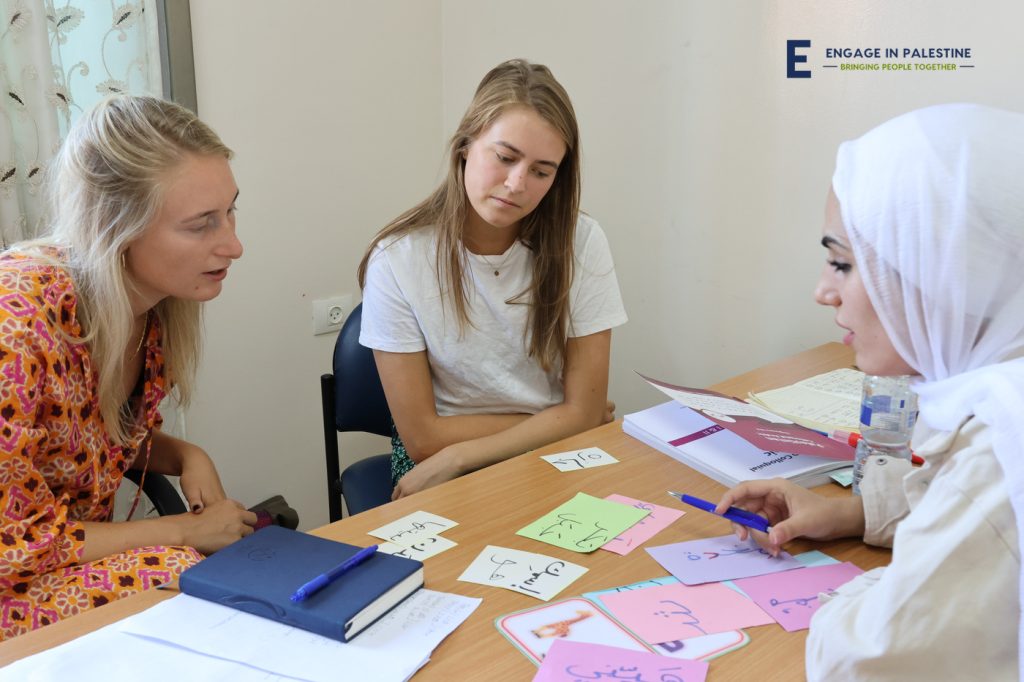
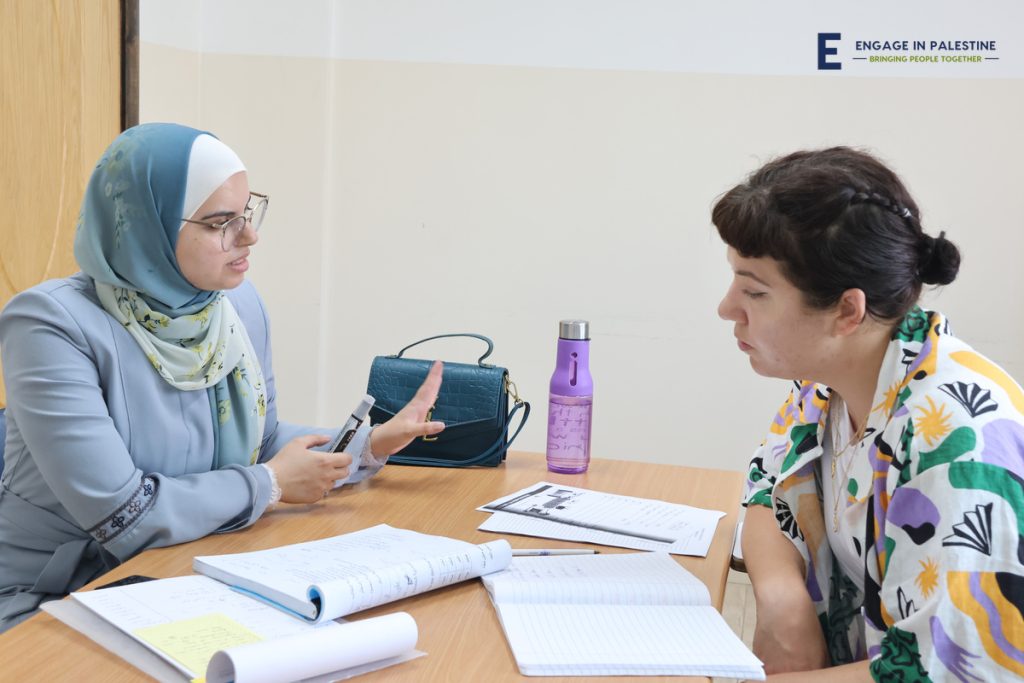
Super-Intensive, Intensive And Non-Intensive Arabic Courses
We offer super-intensive, intensive, and non-intensive courses all year round, the difference between them is how many hours of Arabic instruction you will have. Super-intensive courses generally have up to 6-hours of Arabic lessons per day, five days per week. Intensive courses provide you with 3-4 hours of Arabic instruction a day, five days a week. While non-intensive courses are taught for 3-4 hours per day, three days per week.
Our Arabic Teachers And Courses Will Help You Improve Quickly
When you study Arabic with us, you will be assigned a personal Arabic tutor who will teach you and oversee your progress throughout our course. Our Arabic teachers use the communicative approach to teaching and our intensive courses are designed to immerse you in the language and help you improve your Arabic abilities quickly and effectively. You will also have plenty of chances to practice Arabic outside of the classroom with native Arabic speakers in authentic and real-life settings.
Our Immersive And Communicate Approach
Our immersive approach to language instruction allows students to be fully immersed in the language and culture, which facilitates a deeper understanding of the Levant, its language, and its people. Furthermore, our communicative approach will also allow you to start speaking right away, even if you are a total beginner. It will also build your skills so you can navigate your new surroundings in Hebron and communicate with locals at a basic or more in-depth level, depending on your current Arabic abilities.
Is It Safe In Hebron And The West Bank?
Some people worry about coming to Hebron due to the negative picture of the security situation portrayed in the media, although this is a biased and unfair misrepresentation. In reality, the city is much safer than you might think. There are occasionally clashes and demonstrations, but these are highly localized to one area of the city. There is a clear demarcation between H1 (the Palestinian-only part of the city) and H2 (the mixed area where Palestinians live next to Israeli settlers). This makes it easy to avoid these flashpoints as long as you are sensible.
Study Arabic In Summer With Engage In Palestine
If you are looking for a summer program to study Arabic in The Middle East, Palestine, Israel, close to Bethlehem, Jerusalem, or Tel Aviv, we invite you to join us in Hebron. We provide an immersive and friendly atmosphere for our Arabic students as well as high-quality Arabic instruction provided by knowledgeable and well-qualified teachers.
Summer Intensive Small Group Classes
During the summer months from June through September, we run intensive four-week small-group Arabic courses, beginning on the first day of each month. This means you can spend up to three months studying with us over the summer.
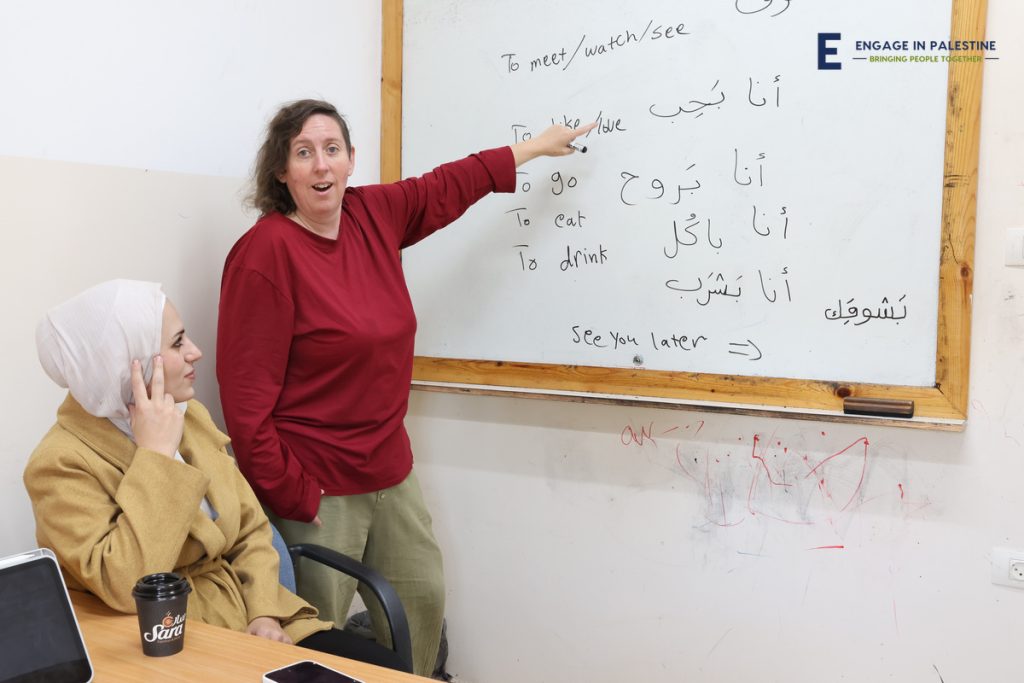
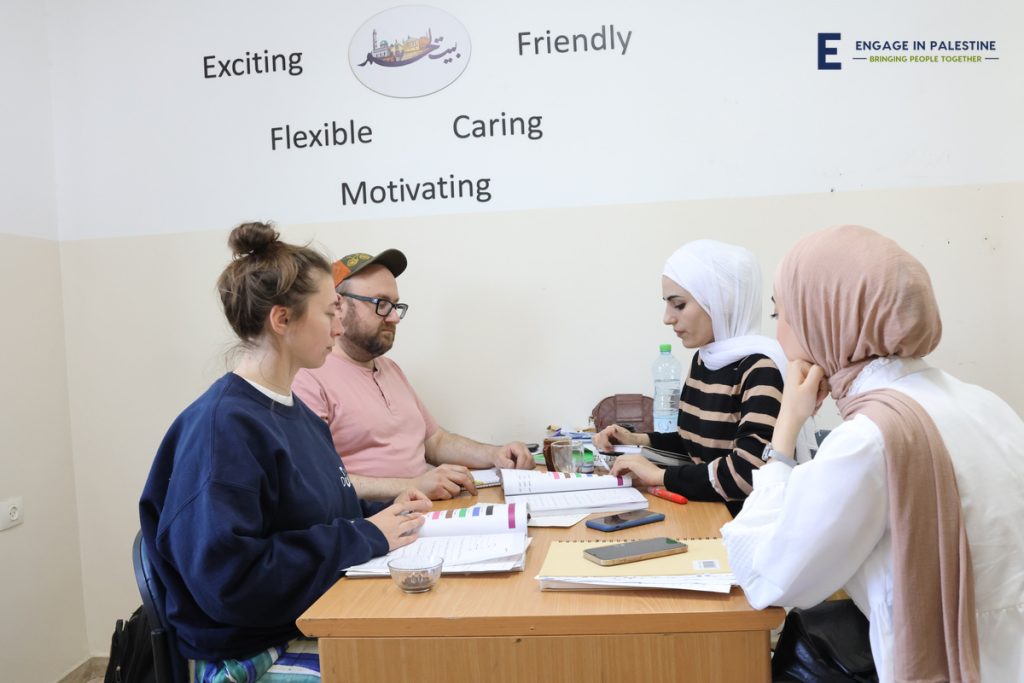
A Small Group Setting
Generally, there are 2-5 students per class, and this small group setting gives each student plenty of attention from their teacher, as well as many opportunities to talk, debate, and engage to improve their Arabic abilities. This will also allow you to become better acquainted with your classmates and you can always meet to study or practice Arabic together outside of your class times.
Arabic Levels On Offer
We offer these summer small group classes in Levantine Arabic in the following levels: Beginner, Elementary, Intermediate, and Advanced. Our classes are suitable no matter your level, and if you aren’t sure of your level, we will happily provide a free placement test for you.
Learn More Than Just The Language
Spending your summer learning Arabic in the West Bank can be a life-changing experience and a unique opportunity to learn more than just the Arabic language, but also the culture and customs which are intertwined with the language. Included in your Arabic course, are visits and tours that we will take you on to areas in and around Hebron of cultural, political, or historical importance, such as the old city of Hebron.
We invite you to join us to make the most of your summer, improve your Arabic skills, and make new friends and memories to last a lifetime.
The Impact Of Studying Arabic In Palestine
Through all of our short-term Arabic courses and volunteer programs, we aim to make a long-term difference for both the local Palestinian community and you. Studying Arabic with Engage in Palestine in Hebron, Palestine, can have a profound impact on the individual student as well as the local Palestinian community.
As a student, you will gain a deeper understanding of Palestinian culture and the issues facing Palestinian society through cultural and linguistic immersion. By building relationships with local Palestinians, you will be able to have an impact on their lives and engage in cultural exchanges, which will also make your time in Hebron more rich and rewarding.
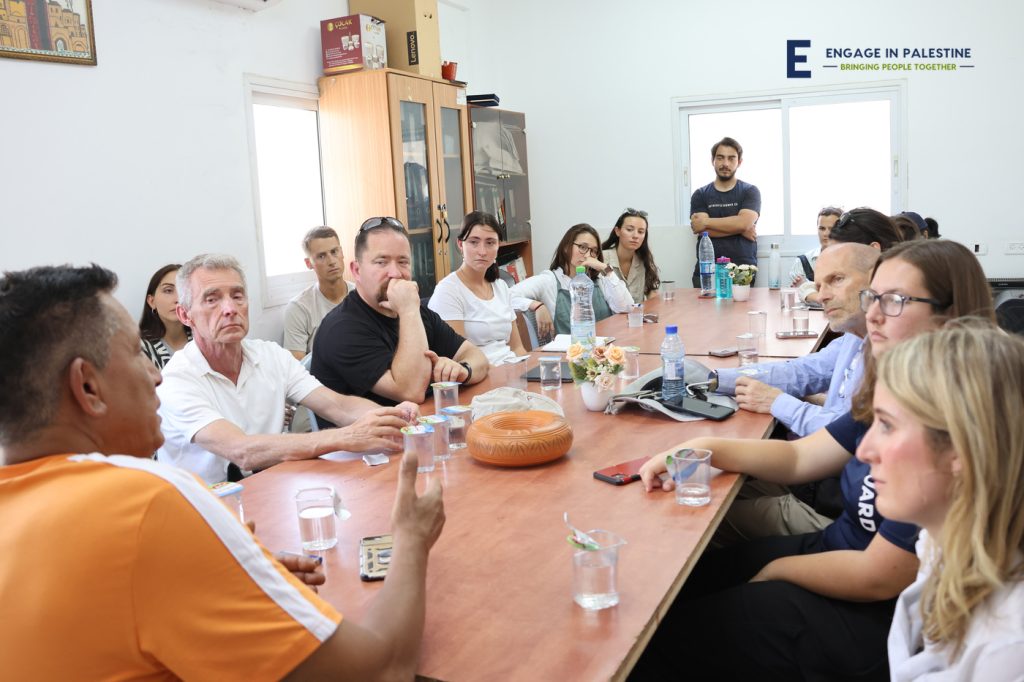
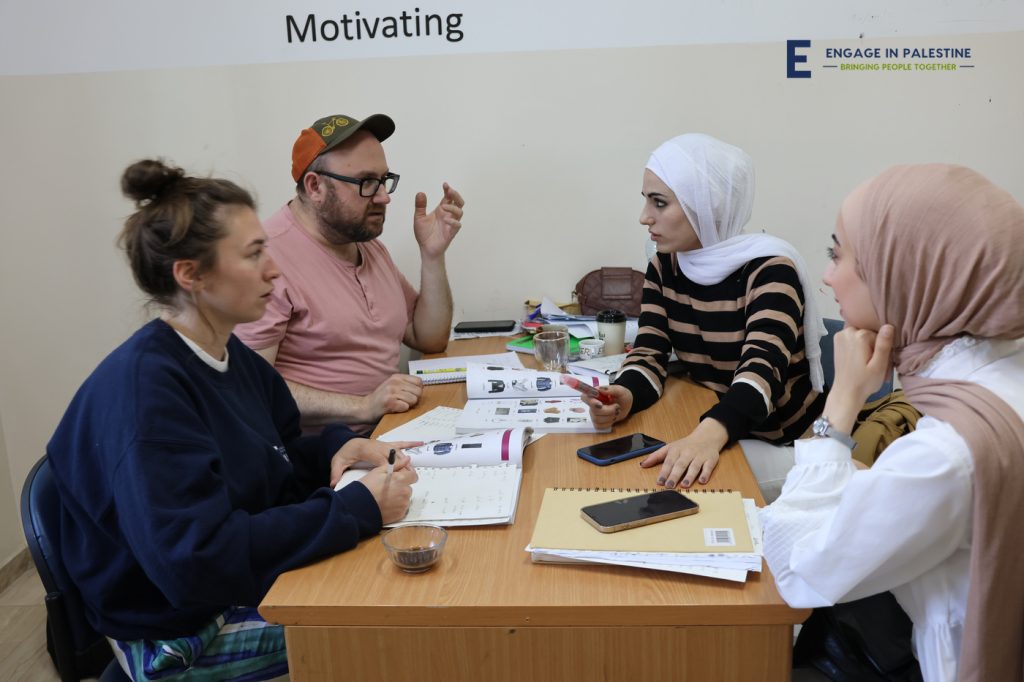
Studying Arabic in Palestine will also allow you to develop a range of different skills. Not only will you be able to improve your Arabic skills, but you can also improve your cross-cultural communication and competencies and other skills such as critical thinking, problem-solving, adaptability, teamwork, and emotional intelligence. These skills will not only benefit you in your personal life but are also applicable and valuable to a wide range of professional contexts.
The Benefits Of Studying Arabic With Us
Studying Arabic with Engage in Palestine has numerous benefits that go beyond simply learning the language with our well-qualified teachers in an immersive and supportive environment. We outline some of these benefits below.
Engage With The Local Palestinian Community During Your Arabic Course
As part of your Arabic program, you will also have many opportunities to engage with the local Palestinian community, in your own free time as well as during the visits and activities that we organize. For example, we will take you on tours to the old city of Hebron, to the keffiyeh factory, to a glass and ceramics factory, to a refugee camp, to other local organizations, and other places or areas in Hebron of cultural, historical or political importance. This allows you to socialize with other internationals during the visits, as well as to learn more about Palestine and practice your Arabic with locals.
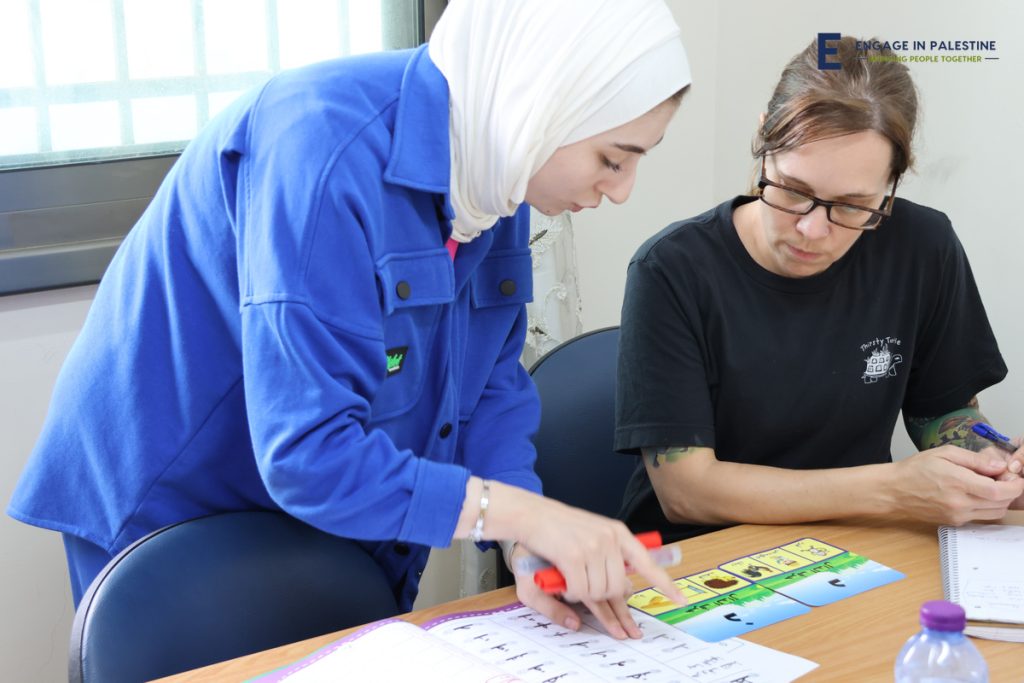
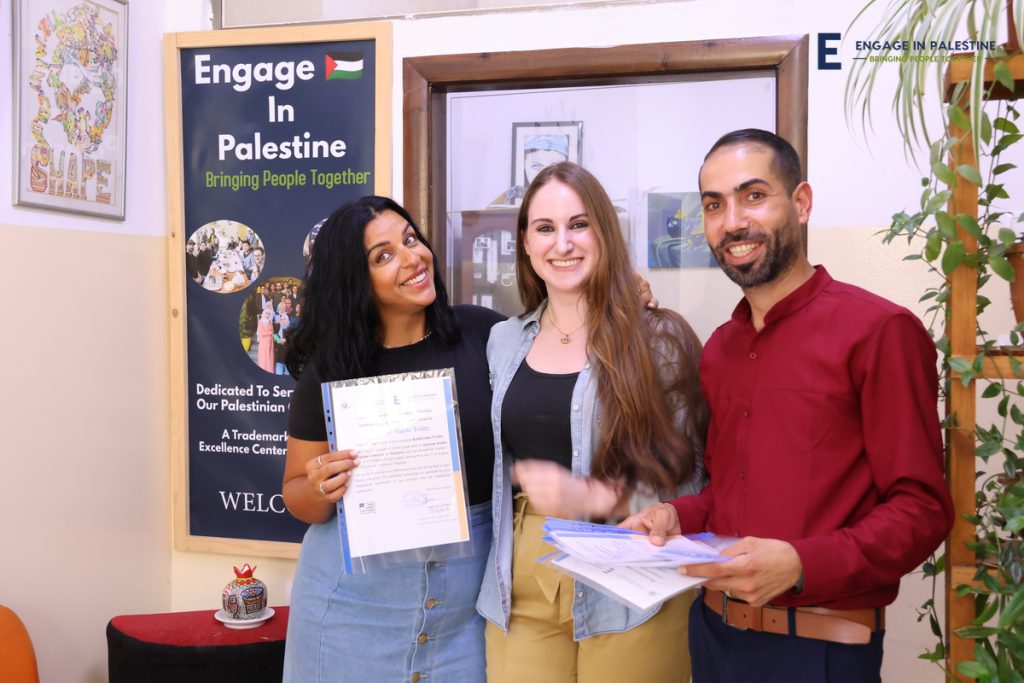
Accommodation
Engage in Palestine provides accommodation for all of our international participants, whether they are Arabic students, volunteers, or interns. Generally female participants will live with Palestinian host families and male participants will share an all-male dorm that we organize. We can also arrange private accommodation for you, although this will come with an additional cost.
Due to the conservative nature of Hebron, it is difficult to place male participants with host families, although this option is sometimes available.
Opportunities To Try Traditional Palestinian Cuisine
During your time with us at our center, we provide breakfast for you each day (except Fridays). This allows you to try traditional Palestinian breakfast food while also getting to socialize with our Palestinian staff, teachers, and other internationals.
We do also include occasional other meals such as dinner. From time to time, we organize traditional Palestinian meals such as maqlubeh, qidreh, uzi, mujadara at our center. For those who live with Palestinian host families, you may have some meals shared with them.
You will also have ample free time to visit various Palestinian restaurants and cafes to try other local Palestinian food and drinks.
Explore Palestine In Your Free Time
For each week of your Arabic course, you will have two days per week off, generally Friday and Saturday, which is the weekend in Palestine. This gives you plenty of time to explore and fully immerse yourself in the culture of this fascinating country. This is the Holy Land after all and there are fantastic places of historical interest to visit here and interesting people to meet wherever you go.
You may wish to visit historic sites such as the old city of Jerusalem, Bethlehem, or Jericho and the Dead Sea. Or nearby local and international cities such as Nablus, Tulkarem, Qalqiliyah, Jenin, Haifa, Eilat, Tel Aviv, Masada, Akko, Herzliya, Beersheva, Tiberias, Nazareth, Netanya, Safed, Amman, Aqaba and Wadi Rum.
Additional Benefits
We also provide you with pre-departure and ongoing in-country support, including providing you with assistance to know how to make your way to Hebron. If you are a current university student and wish to obtain academic credit for your Arabic studies, we can provide this to you due to our collaboration with the Palestinian Ministry of Education. Finally, at the end of your Arabic course, we will provide you with a certificate to reflect your completion of your course.
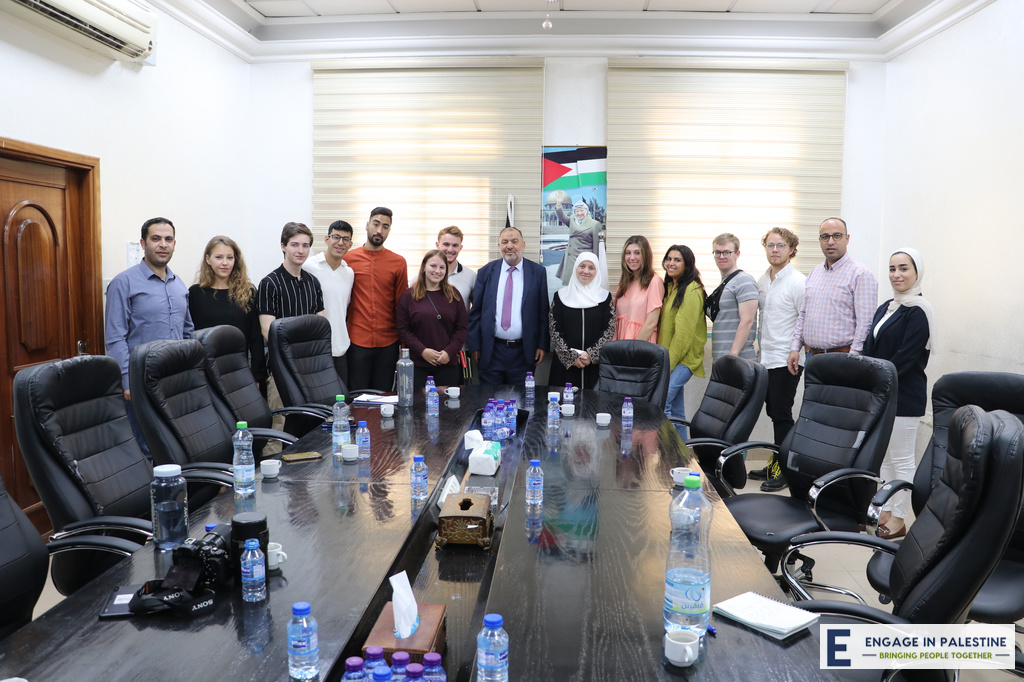
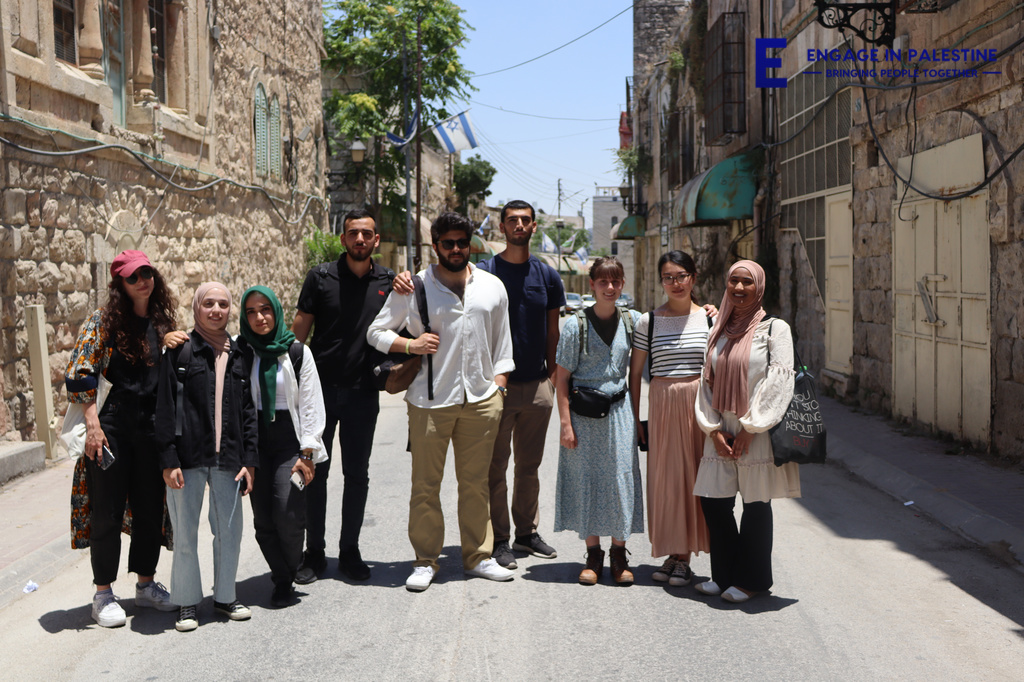
Reviews and Awards
Engage in Palestine has been honored with several prestigious Community Awards, recognized as the Best Language School and Top Volunteer and Internship Program Provider for the years 2019, 2021, 2022, and 2023. For more details, please visit our profiles on GoOverseas.com and GoAbroad.com.
- +840 Reviews and ratings (96.8%) on gooverseas.com
- +170 Reviews and ratings on goabroad.com
- Participants’ video testimonials
In Conclusion
Learning Levantine Arabic has the potential to open up a world of opportunities for anyone interested in the Levant or the Middle East more broadly and its cultures. We believe the best and fastest way to learn it is by learning through immersion in the Levant.
At Engage in Palestine, in Hebron, West Bank, Palestine, we offer a variety of short-term immersive Arabic programs, including Levantine Arabic courses. Our courses range from 1-13 weeks throughout the year and we are very flexible when it comes to start and end dates. They are suitable for anyone wishing to study Arabic in the areas of the Middle East, the Levant, Palestine, the West Bank, or Israel.
Our well-qualified native Arabic speakers use communicative, immersive, and personalized approaches to help students improve quickly and make the most of their time together. However, learning Levantine Arabic with Engage in Palestine is not only about language acquisition, it is also a meaningful opportunity to engage in cultural exchange, grow relationships, and for students to learn more about Palestinian history, culture, and society.
We look forward to welcoming you to Engage in Palestine to study the Levantine Arabic dialect sometime soon!
Find Out More
Do you have any questions? Then please do not hesitate to contact us: Info@ecpalestine.org and on Whatsapp:+972 599 479 880.
